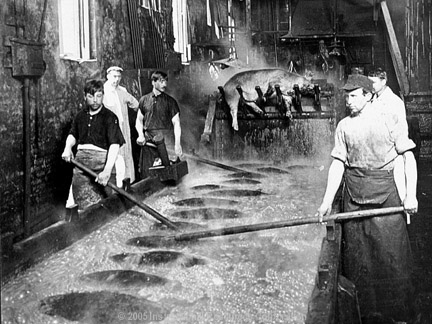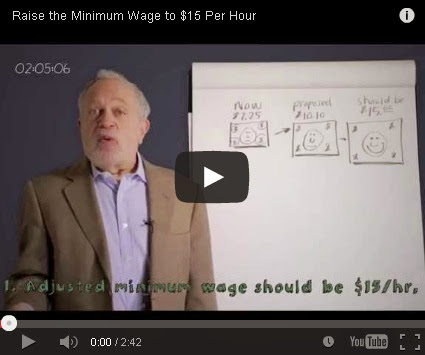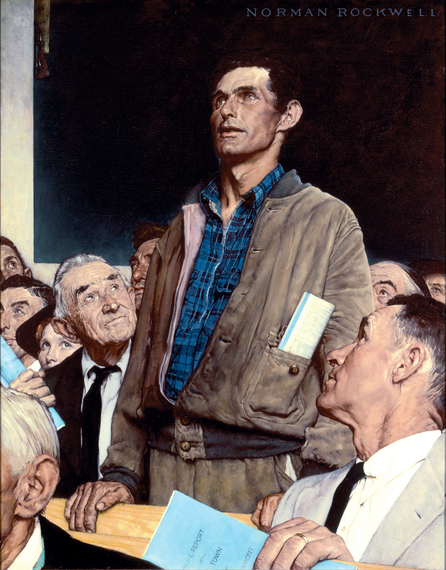By Harry Targ
Progressive America Rising via Diary of a Heartland Radical
The stench is vomit-making as never before. The fat and plucks, the bladders and kidneys and bungs and guts, gone soft and spongy in the heat, perversely resist being trimmed, separated, deslimed; demand closer concentration than ever, more speed. A helpless, hysterical laughter starts up. Indeed, they are in hell; indeed they are the damned. Steamed, boiled, broiled, fried, cooked. Geared, meshed.
In the hog room,108 degrees. Kerchiefs, bound around their foreheads to keep the sweat from running down into eyes and blinding, become saturated; each works in a rain of stinging sweat. Almost the steam from the vats seems cloud-cool, pure, by contrast. Marsalek falls. A heart attack. (Is carried away, docked, charged for the company ambulance.) Other hearts pound near to bursting. Relentless, the conveyor paces on.
Slow it, we got to slow it. (Tillie Olsen, Yonnondio: From the Thirties, 1974)
American workplaces from the dawn of the industrial revolution to the recent past were living hells for workers.
Novelist and essayist Tillie Olsen described working conditions in meat-packing plants in the 1930s. Others have written about auto assembly lines, mines, textile assembly plants, and food-processing plants. Analysts such as Harry Braverman, in Labor and Monopoly Capital (1974), pointed out that employers have usually sought to control the minds and motions of workers. Profit-making has been seen as tied to controlling every movement of workers, the speed-up of production, and cutting costs for health and safety. After years of labor mobilization, the Occupational Safety and Health Act passed in 1970 to begin to address the problem of how dangerous it was to go to work each day.
Every April 28, workers across North America assemble to remember those workers who died or were injured on the job. Workers’ Memorial Day, initiated in the United States by the AFL-CIO in April, 1989, celebrates the inauguration of the Occupational Safety and Health Administration (1970). Workers’ Memorial Day is about remembrances, reviews of progress toward safety and health, and re-commitment to making the workplace safer.
In April, 2013 the AFL-CIO issued its annual data-based report, “Death on the Job: the Toll of Neglect,” to review the current state of worker health and safety, given the administration of OSHA rules initiated over forty years ago. “Since that time, workplace safety and health conditions have improved. But too many workers remain at serious risk of injury, illness or death as workplace tragedies continue to remind us.” These tragedies have occurred in mines, oil refineries, fertilizer plants, meat-packing plants, manufacturing facilities, and on construction sites.
The AFL-CIO report indicated that 4,693 workers were killed on the job in 2011 (13 workers per day). Over 3.8 million work-related injuries were reported with unofficial estimates of such injuries doubling or tripling that total. Particular sub-groups, such as Latino workers and those born outside the United States, experienced excessively high injury rates, presumably because of their fears of raising safety concerns within the workplace.
The report indicated that workplace inspections had decreased over the years because of budget constraints limiting the hiring of inspectors. Given the numbers, federal OSHA employees could be expected to investigate a workplace once every 131 years and state OSHA inspections can be expected every 76 years. Penalties for workplace violations also are inadequate to deter violations.
The Report indicated that budget allocations for OSHA must be dramatically increased, more laws must be passed to regulate the complex reality of workplace dangers, and worker rights to protest dangerous conditions at the workplace must be strengthened.
This year, Workers’ Memorial Day events will highlight demands to address contemporary issues of concern such as
-defending the OSHA process from political campaigns to reduce workplace regulations.
-requiring employers to establish work-site safety and health programs with worker participation to address enduring hazards.
-adding safeguards against respiratory diseases from silica, combustible dust, and Black Lung.
-protecting workers who seek to challenge workplace safety hazards, particularly for immigrant workers.
-passing more legislation such as the Protecting America’s Workers Act to expand protection for workers not yet covered by OSHA rules.
-increasing worker voices on the job including creating an environment that would allow workers to freely choose to form unions.
Earl Cox, Community Services Liaison, Northwest Central Labor Council, Indiana AFL-CIO, concluded as he announced the 2014 event that legislators must be made aware of workplace health and safety “…so when a vote comes up to slash funding for OSHA, they vote to protect workers and not corporate interests.” The AFL-CIO believes that “safety laws and regulations don’t kill jobs—but unsafe jobs kill workers.”
(For those living in Tippecanoe County, Indiana Workers’ Memorial Day events will occur April 28, Inside the Depot, Riehle Plaza, Lafayette at 5:15 p.m.)
www.heartlandradical.blogspot.com









![[PDA - Heathcare NOT Warfare - Sign the Petition.]](http://pdamerica.org/images/ads/HealthNotWar_final.jpg)


